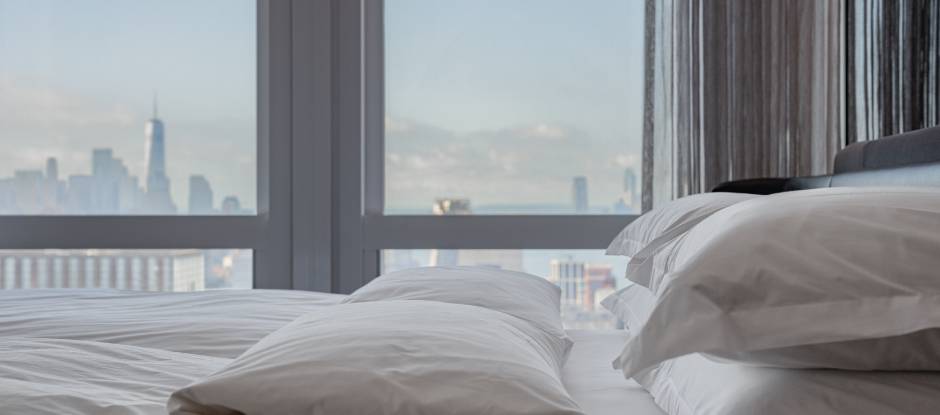Lulling an always-on generation of travellers into deep slumber demands more than lavender pillow sprays, silk pyjamas and mood lighting. Sleep has become serious business for hoteliers who are making investments in design, tech and science-backed therapies for weary visitors. Meet the hotels who’ve made it their mission to send guests to sleep
The dream bedroom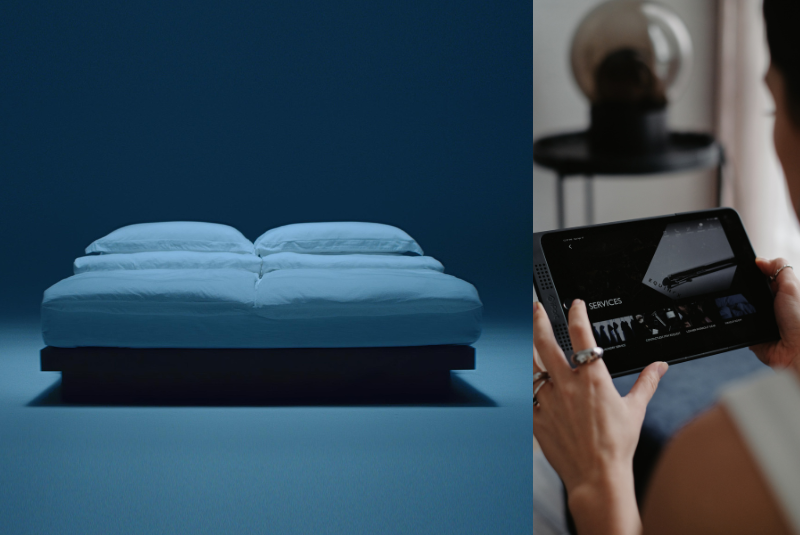
Sleep is a priority at the wellness-focused Equinox Hotel New York
In the city that famously never sleeps, the flagship Equinox Hotel New York had sleep ingrained into its design from the outset. “Creating an atmosphere where your best night's sleep is possible is the future of luxury hospitality,” says Chris Norton, CEO of Equinox Hotels. “We have all stayed in a hotel room where there is an annoying blinking light or scratchy linens. We worked with sleep scientists to design rooms that function as ‘sleep chambers’, so sleep is built into the hardware of our rooms.”
“Dark, quiet and cool are the specific elements guests need for a good night’s sleep,” says Dr Stephani K. Robson, Senior Lecturer Emerita at Cornell University’s School of Hotel Administration and an expert in the psychology of hotel design. At Equinox Hotel, after a wind-down in the Sleep Spa and a gentle guided breathwork and meditation ritual, guests can tuck themselves into natural linen bedsheets with a melatonin-stimulating charcoal latte and hit the ‘Dark. Quiet. Cool’ button, which sets the holy trinity of high-spec soundproofing, next-gen blackout blinds and medical-grade air filtration to optimum sleep mode.
The perfect-temperature bed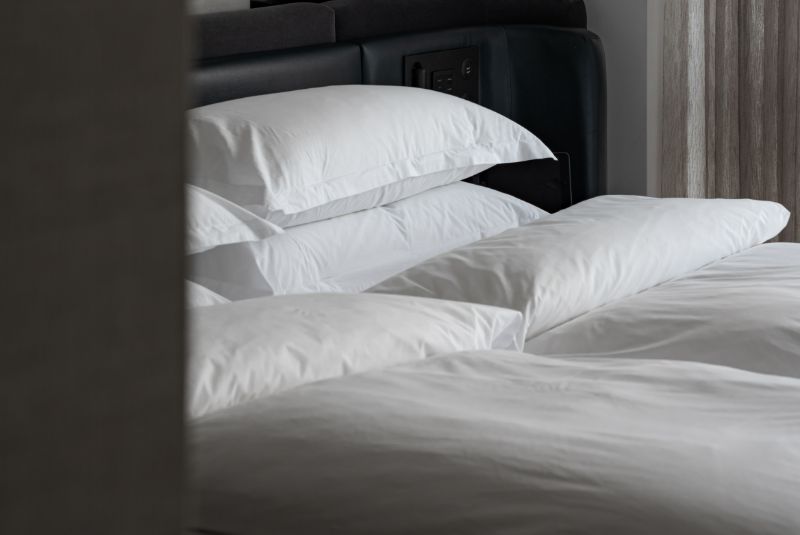
Room temperature should be between 16-18 degrees Celcius for optimal shuteye
According to researchers at Tokohu Fukushi University in Japan, heat – especially humidity – is one of the major disruptors of deep slow wave and REM sleep. A drop in core body temperature, which brings blood pressure down, is essential for good shuteye. “We suggest that 16-18 degrees is the correct room temperature for quality sleep, which can be very difficult for a hotel to achieve at a steady rate without putting noisy chillers in the air conditioning,” explains Dr Neil Stanley, an independent sleep expert.
It’s a problem that the Dutch manufacturer of the temperature-regulated FreshBeds is tackling, with a bed that circulates purified air silently through the mattress, allowing guests to customise their sleep climate and maintain just the right skin temperature (27-29 degrees) and humidity levels of less than 50% to stay dry and cool. If you don’t fancy investing $50,000 on your own FreshBed, you can try one out with a night’s stay at the upmarket RH Guesthouse in Manhattan’s Meatpacking District.
The subterranean sleep cocoon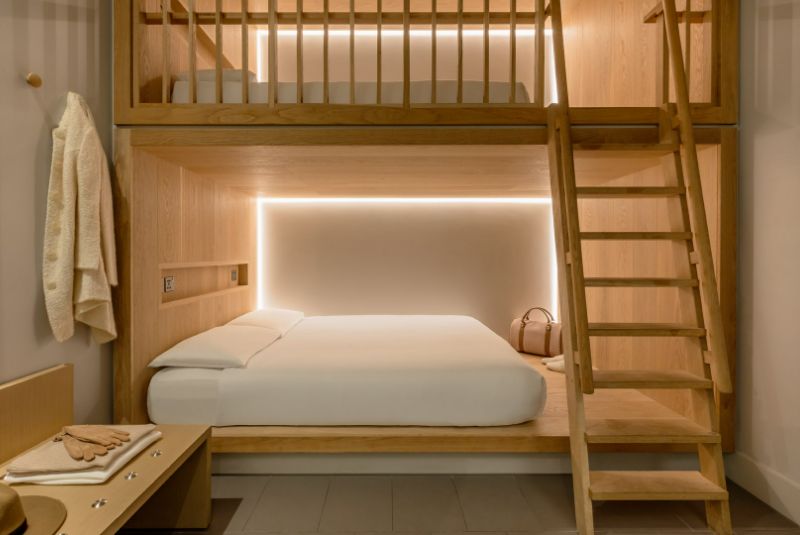
Bedrooms at Zedwell are designed to feel like a cocoon (Image: Criterion Hospitality)
If you’ve ever found yourself trying to construct a cover for the TV’s standby light from a room service menu at 3am, then you’ve come up against ‘first-night effect’. “The first night you are in a new environment, your brain doesn’t switch off because it doesn’t know what’s happening around it,” explains Dr Stanley. “You can only sleep if you feel secure, so any sound or light your brain doesn’t recognise brings you back to consciousness, which happens about 200 times a night.”
London-based, ‘serious about sleep’ mini-chain Zedwell believes it has the answer. Its sound-insulated, purified air-filled cocoons have no TV (so no standby light), no windows and no distracting clutter. The underground rooms are fitted with Hypnos beds and fine Egyptian cotton sheets, as well as stress-free light and temperature controls. Lighting mimics the natural cycle of daylight to fire up guests’ natural circadian rhythms, so preparation for the next night starts as soon as you wake up.
The biometric personalised programmes 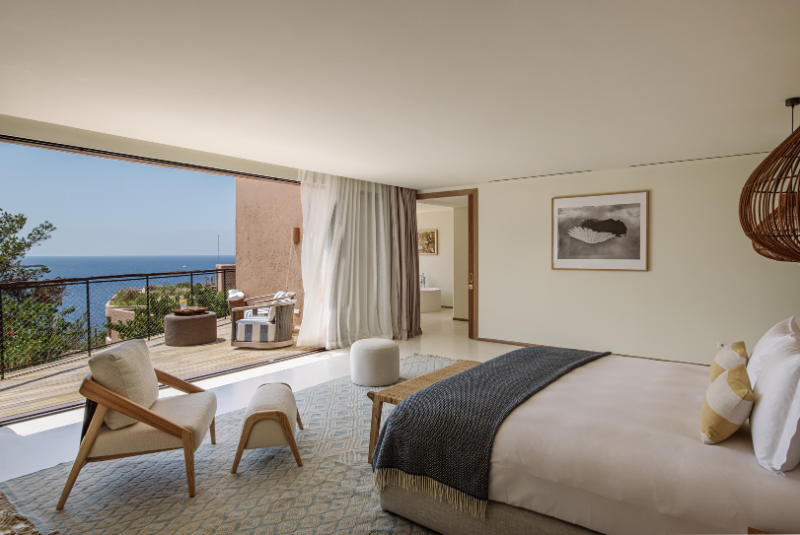
Guests at Six Senses Ibiza can enrol into a range of multi-day sleep programmes
In Japan, where the Health Ministry has recently set sleep targets for its population, Nine Hours is one of a number of hotels where capsule rooms are measured in centimetres and, as they’re not tall enough to stand up in, are really only conducive to lying down. But the place to really dig into your sleep deficit is at the brand’s Nine Hours Sleeplab in Aksaka. After nine hours on an artisan, soya-bean shaped Kitamura pillow, designed to smooth the rotation of your head (which is around 30 times a night, in case you were wondering), you’ll wake to a sleep fitscan, which is generated by sensors and cameras in the capsule that measure body movements, snoring and facial images to reveal how efficiently you have recharged.
At Six Senses Ibiza, diagnostics are only part of the picture for sleep-starved guests on the hotel’s three, five or seven-night programmes. “As part of the advanced sleep analysis, we’re able to measure sleep biomarkers and personalise a rest regime for guests,” says Six Senses' VP of Wellness, Anna Bjurstam. An initial 45-minute wellness screening and sleep tracking form the basis for in-house sleep specialists to customise an itinerary that includes yoga nidra, sound therapy, cryotherapy, meditation and massage as well as nutrition advice. And, if you’re still restless, the hotel will make adjustments to lighting, introduce sound therapy and fit eucalyptus bed linen that regulates body temperature.
The natural remedy 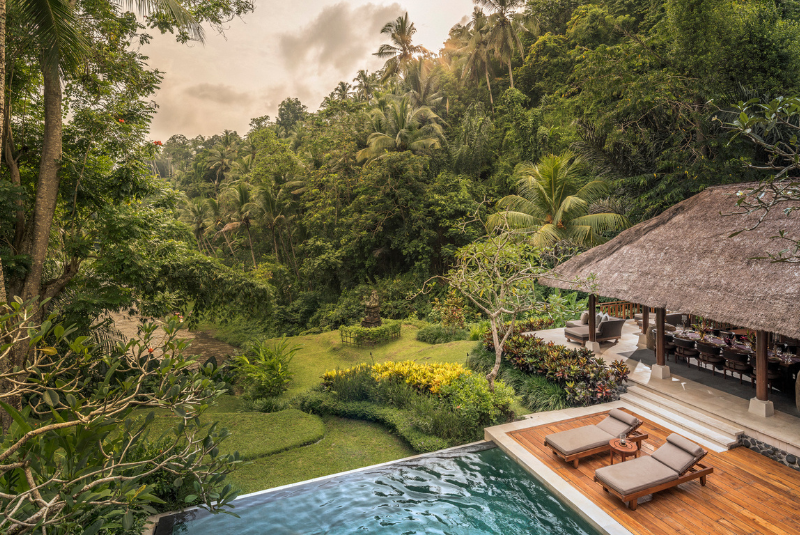
Four Seasons Resort Bali at Sayan reconnects guests with nature (Image: Four Seasons)
If urban sleep hotels are designed to block out frenetic surroundings, high-end resorts in wilder locations, like the Four Seasons Resort Bali at Sayan, use its environments to feed rest and relaxation. Biophilic design, which harnesses the innate human need for connection with living things and has been shown to promote positive mental health and wellbeing, comes easy in the Balinese jungle. Deep in the rainforest, the Four Seasons’ treatments include a sacred afternoon ‘air nap’, suspended in a silk cocoon in a bamboo pavilion in verdant paddy fields and set to the sounds of nature and the life story of the Buddha read by the resort’s wellness guru.
The natural surroundings of the hotel form the foundations of the sleep programme at Post Ranch Inn, which sits on a forested ridge overlooking the Pacific in Big Sur, California. Modern Ocean View and Treehouse rooms come with organic mattresses and linen and are hi-spec but low-tech. Who needs a TV when you’ve got floor-to-ceiling Pacific seascapes, in-room massage tables and super-sized hot tubs?
Guests can book in for the hotel’s Sleep Package, which has been designed with top US sleep expert Dr Michael Breus, who will guide you to sleep via a series of video sessions. But the real selling point here is the menu of sleep-promoting activities. Your day could begin with an hour’s creative dream journalling or a nature walk, foraging calming herbal remedies for a pre-bedtime bath soak, and draw to its conclusion at the stunning cliff-top Sierra Mar restaurant, where the chef will prepare a Serenity Dinner Menu using ingredients hand-selected to induce relaxation and a deep sleep. Dreamy indeed!
Use our city guides and consult the refreshed 50 Best Discovery search engine for thousands more restaurant, hotel and bar recommendations across the world. Start planning your next adventure today.
